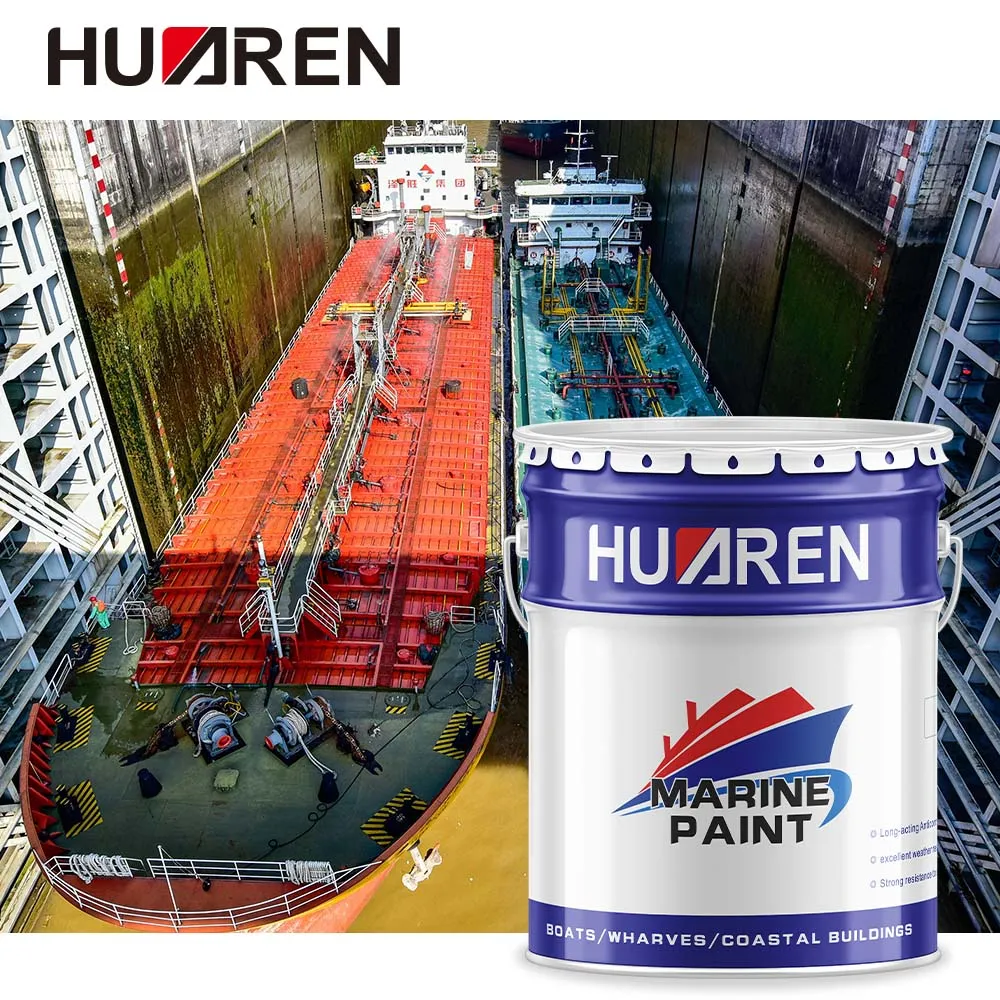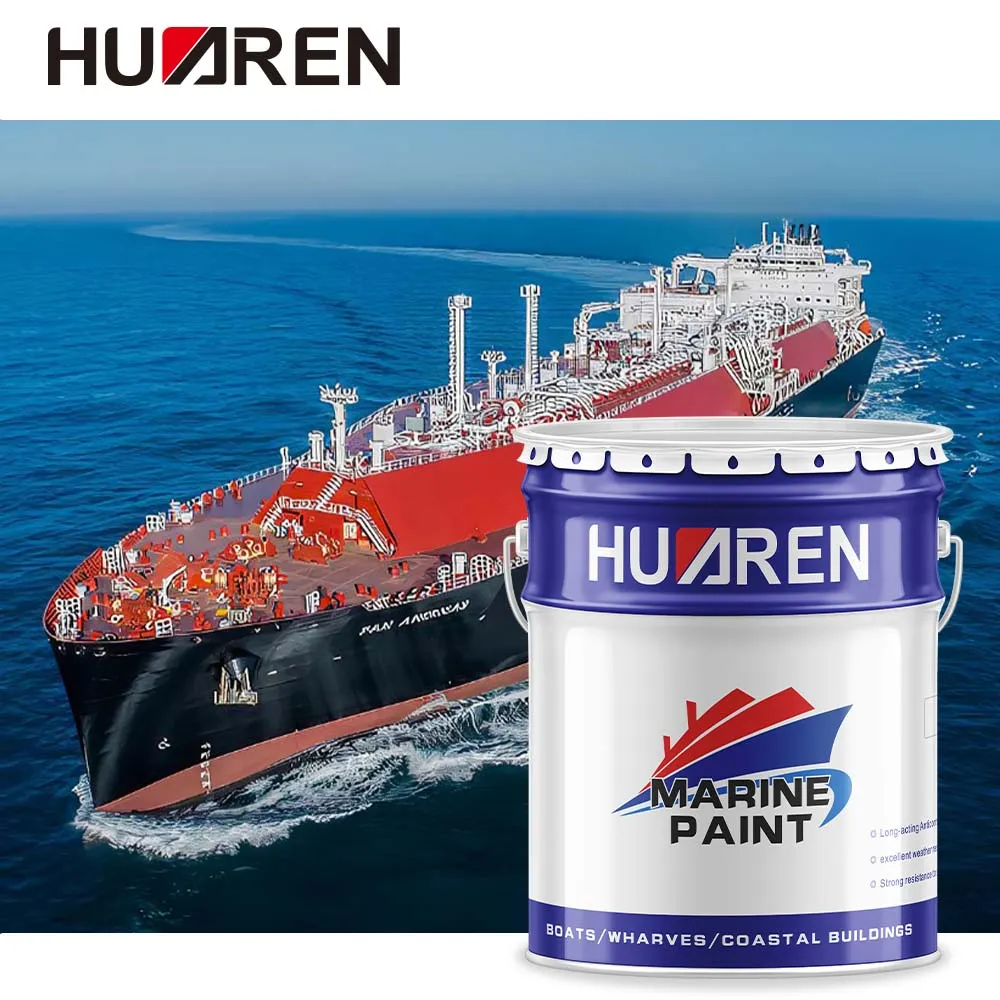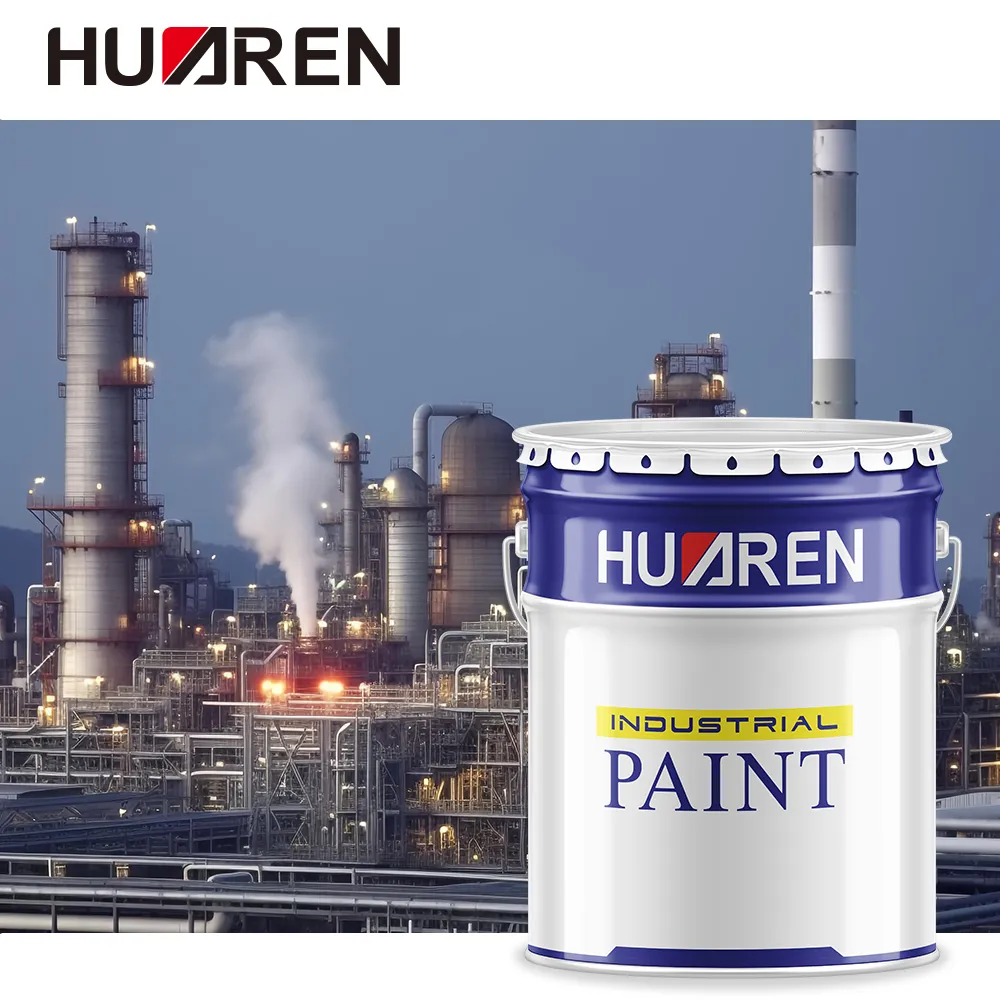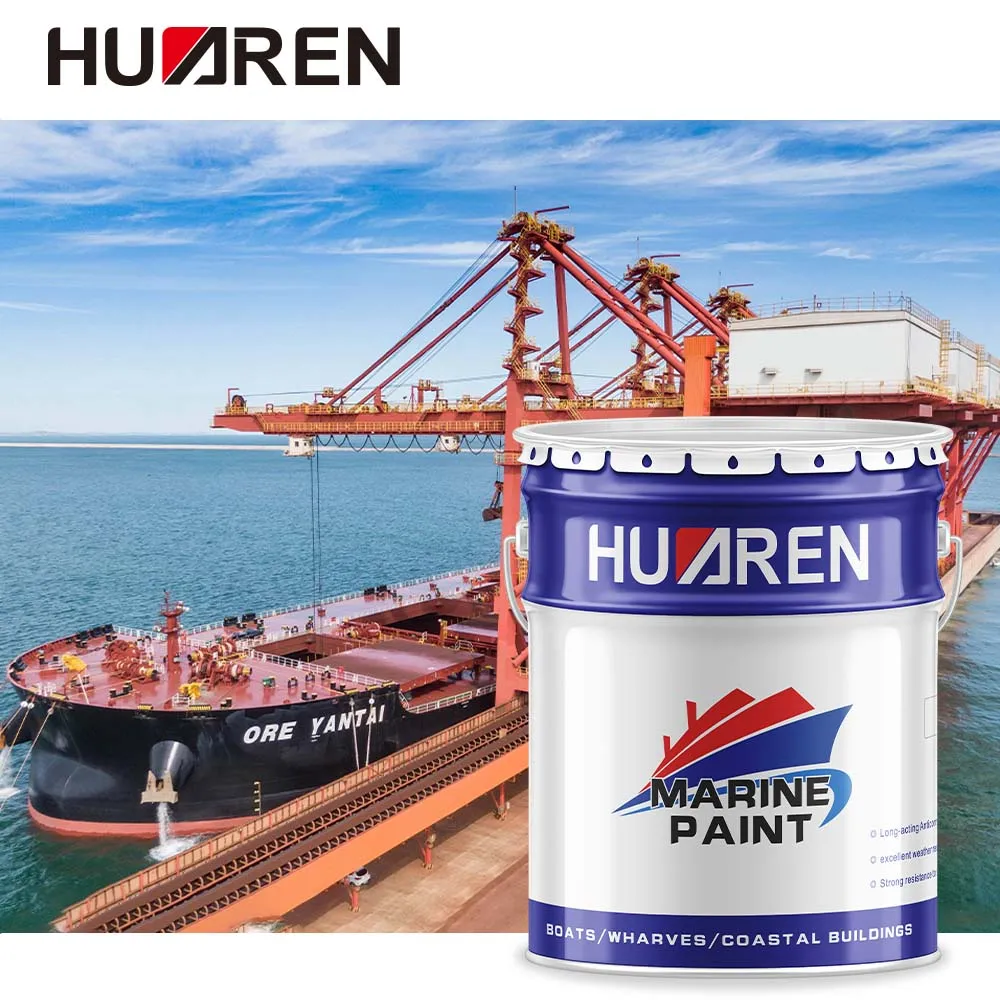Aluminum boat hulls are widely used in a variety of boats, especially in the commercial and leisure sectors. This material is favored for its lightness, good corrosion resistance and high strength. However, although aluminum has natural corrosion resistance, aluminum hulls still face many challenges in marine environments, such as galvanic corrosion, salt water erosion and marine biofouling. Therefore, in order to protect aluminum hulls from these threats, it is essential to apply the right primer.
Primer not only provides an additional protective barrier for aluminum hulls, but also improves the adhesion of subsequent coatings to ensure long-lasting protection. Different types of primers have different characteristics and applicable environments, so which primer is the best choice for aluminum hulls? This article will take a deep look at the protection needs of aluminum hulls and the common types of primers to help you choose the most suitable primer to extend the service life of the hull.

Why does an aluminum hull need a primer?
Aluminum is a metal with strong corrosion resistance. It will form a natural oxide film in the atmosphere, which can provide a certain degree of protection for the metal surface. However, when aluminum hulls are exposed to more corrosive marine environments, especially when exposed to seawater for a long time, the oxide film may be damaged, causing electrochemical corrosion of the hull.
Electrochemical corrosion
When aluminum comes into contact with other metals such as steel or copper, electrochemical corrosion occurs due to the potential difference between the different metals. This corrosion causes the aluminum to be gradually eroded, thus affecting the structural strength of the hull. The use of primer can isolate the direct contact between the aluminum hull and other metals and slow down the occurrence of electrochemical corrosion.
Marine bioattachment
When ships sail in seawater for a long time, shellfish, algae and other organisms in the ocean are easy to attach to the surface of the hull. This will not only increase the resistance of the ship and reduce the speed, but also aggravate the corrosion problem. Primer can provide a smooth protective layer to reduce the attachment of marine organisms, and work with subsequent antifouling paint to further reduce the breeding of marine organisms.
Improve paint adhesion
The surface of aluminum is smooth and relatively inert, and direct application of paint may result in poor adhesion or peeling. Primer can significantly improve the adhesion of subsequent coatings, ensuring that the paint maintains a good protective effect for a long time. Especially for boats that require frequent maintenance, primers can reduce the preparation work when repainting and improve the overall durability of the paint.

What are the common types of primers for aluminum hulls?
There are many types of primers for aluminum hulls on the market, and different types of primers differ in protection, applicability and construction requirements. Understanding the characteristics and functions of various primers is the key to choosing the right primer. The following are several common types of primers for aluminum hulls and their advantages and disadvantages:
Epoxy Primer
Epoxy primer is the most common and widely used primer, especially for aluminum hulls. Epoxy primer has excellent corrosion resistance and adhesion, and can form a solid barrier on the aluminum surface to prevent the penetration of moisture and oxygen and prevent corrosion of the hull. Epoxy primer is also chemically resistant and abrasion resistant, and can provide long-term protection in harsh marine environments.
Advantages of epoxy primer:
● Excellent corrosion protection, especially in seawater environments.
● Good adhesion, suitable for use with various paint systems.
● Strong wear and chemical resistance, suitable for long-term use.
Disadvantages of epoxy primer:
● The environment requirements are high during the construction process, and the appropriate temperature and humidity need to be maintained.
● The drying time is long, and multiple applications are required to achieve the best results.
Aluminum-Specific Primer
Aluminum-Specific Primer is designed specifically for aluminum and can form a coating with extremely strong bonding strength on the aluminum surface. This type of primer usually contains special chemical ingredients that can form a strong chemical bond with the aluminum surface to improve protection and adhesion. The construction of this primer is relatively simple and suitable for various aluminum hulls.
Advantages of aluminum-specific primer:
● Designed for aluminum, with strong adhesion, suitable for complex aluminum surfaces.
● Simple construction, relatively low requirements for the construction environment.
Disadvantages of aluminum-specific primer:
● It may not have the multiple protective properties of epoxy primers and needs to be used in combination with other coating systems.
Polyurethane Primer
Polyurethane primer has excellent weather resistance and corrosion resistance and is widely used in protective coating of ship hulls. Polyurethane primer dries quickly and provides good mechanical properties. Compared with epoxy primer, polyurethane primer is more flexible and can maintain good performance in an environment of thermal expansion and contraction, and is suitable for marine environments with large temperature differences.
Advantages of polyurethane primer:
● It has good weather resistance and elasticity and can adapt to temperature changes.
● It dries quickly and has high construction efficiency.
Disadvantages of polyurethane primer:
● It is relatively expensive and its long-term protective performance in extreme corrosive environments is slightly inferior to that of epoxy primer.
Zinc Chromate Primer
Zinc chromate primer is a traditional anti-corrosion primer, commonly used on metal surfaces such as aluminum and magnesium alloys. It contains zinc-chromium compounds, which can provide electrochemical protection and reduce corrosion on metal surfaces. However, due to the potential harm of zinc-chromium compounds to the environment and health, many countries and regions have restricted the use of this primer.
Advantages of zinc-chrome primer:
● Excellent anti-corrosion performance, can provide electrochemical protection.
● Strong adhesion, suitable for aluminum surface.
Disadvantages of zinc-chrome primer:
● Environmental issues are prominent, and many regions have restricted or banned its use.
● Need to be used in combination with other environmentally friendly primers, which increases the complexity of construction.
Zinc-Rich Primer
Zinc-Rich Primer is a common anti-corrosion primer, usually used to protect metal surfaces, especially steel and aluminum. The primer contains a large amount of zinc powder, which can provide a sacrificial anode protection mechanism, that is, the zinc powder will be oxidized first to prevent the aluminum hull from corrosion. Zinc-Rich Primer can not only resist electrochemical corrosion, but also serve as a base coating for antifouling paint.
Advantages of zinc-based primer:
● Provide excellent electrochemical protection and slow down aluminum corrosion.
● Compatible with many types of antifouling paint systems.
Disadvantages of zinc-based primer:
● The effect of the sacrificial anode means that the primer will gradually be consumed and requires regular inspection and maintenance.
● It does not have a comprehensive protective effect when used alone, and usually needs to be used in combination with other primers or coatings.

How to choose the best primer for aluminum hulls?
When choosing a primer, you need to consider the use environment of the ship, maintenance cycle, coating budget and other factors.
Use environment
The use environment of the aluminum hull directly affects the choice of primer. If the ship is moored in seawater for a long time, it is necessary to give priority to primers with strong corrosion resistance, such as epoxy primers or zinc-based primers. For ships in freshwater environments or seasonal use, aluminum-specific primers and polyurethane primers can also provide sufficient protection.
Maintenance cycle
The choice of primer also needs to consider the maintenance cycle of the ship. Although epoxy primers are complicated to apply for the first time, they provide long-term protection and are suitable for ships that do not want frequent maintenance. Although zinc-based primers can provide strong electrochemical protection, the characteristics of their sacrificial anodes determine that they need regular inspection and maintenance.
Coating budget
Primers vary in price and construction difficulty depending on the type. Polyurethane primers are more expensive, but they dry quickly and are suitable for quick construction. Epoxy primers, while affordable, take longer to apply and may require more labor costs. Make a sound decision based on your budget when choosing.

As a leading Chinese manufacturer of industrial coatings and resins, Huaren Chemical Industry Co., Ltd. takes pride in delivering high-performance products at competitive prices. Since 1994, we have specialized in the development and production of floor paints, phenolic coatings, and water-based industrial paints, meeting the needs of industries such as machinery, construction, and shipbuilding. Our modern facilities, featuring 30 paint production lines and 6 resin lines, enable us to achieve an annual output of over 20,000 tons. Whether you require bulk supply, wholesale deals, or customized manufacturing services, we are here to help.
Our products are well-received in global markets, including Africa, India, and Europe. Let Huaren be your reliable supplier for industrial coatings. Contact us today for competitive quotes and take advantage of our factory promotions and discounts.

